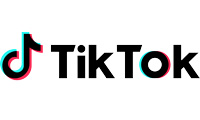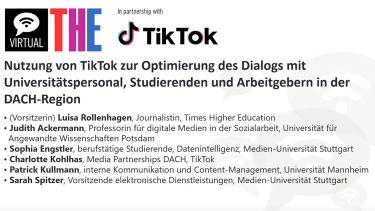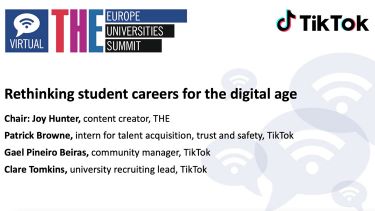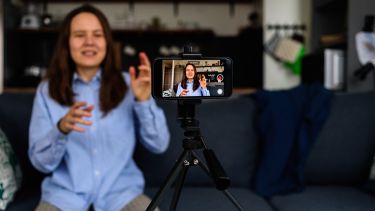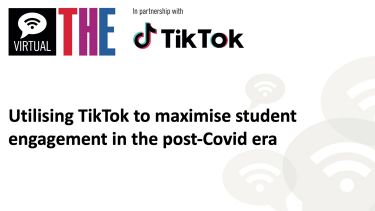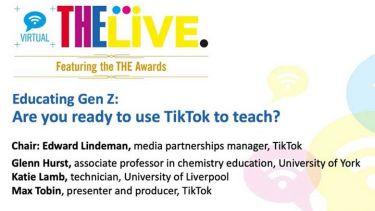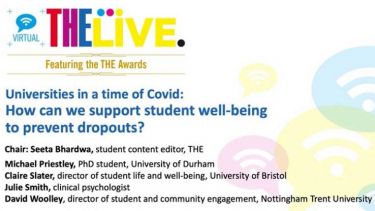With Covid-19 keeping prospective students away from campus, universities are using digital storytelling to communicate their values and maintain a sense of community
Universities have no shortage of stories to tell. Many want to share their achievements, others will relay the institution’s academic mission and core values, and some place the students and faculty at the heart of their narrative.
At the Times Higher Education Leadership and Management Summit 2020, industry leaders discussed the power of digital storytelling and how it has been used during the Covid-19 pandemic to promote the university experience and foster a sense of community during the crisis.
Tania Rhodes-Taylor, vice-principal of external relations at the University of Sydney, said the most effective stories were not about the university itself but rather about its students and staff. “The story is really about a shared experience,” she said. At the University of Sydney, students were given control of its social media channels to tell their story. This grassroots approach presented university life with a degree of authenticity that a dedicated marketing and communications team might struggle to replicate.
The results had a profound impact on how the university was perceived. “Our sentiment tracking increased 31 per cent over that period,” Ms Rhodes-Taylor said. “We know that it made people feel more warmly towards the organisation.”
The National University of Singapore took a similar approach, encouraging students and faculty to use digital storytelling to share their experiences via the university’s intranet and online platforms. Chief communications officer Ovidia Lim-Rajaram said it was often the case that the more informal the video, the more successful it was in communicating what the university was really like as an institution and community.
“For the first time, I saw universities just being less corporate, being less about the brand but more about speaking to the brand values,” Ms Lim-Rajaram said. Covid-19 has presented many challenges, she said, not least of which is disinformation, but having nursing students publish videos on basic public health measures has had a huge impact online. “We saw videos like this going viral,” said Ms Lim-Rajaram. “People didn’t care if the lighting was bad or if it was a little bit longer than it should have been – the message was there.”
The panel discussed how the Covid-19 pandemic has accelerated the evolution of digital communications in higher education. More risks were taken, with fresh approaches yielding impressive results. Rachel Sandison, vice-principal of external relations at the University of Glasgow, hoped this signalled a new era in communications.
Using the Unibuddy platform, the University of Glasgow’s digital student ambassadors offered prospective students an unvarnished look at campus life, addressing their concerns and promoting the institution’s community feel. “That has been so powerful, really impactful, because it is also authentic,” Ms Sandison said. “We are not moderating anything with that discussion. Honesty and transparency are so important at this time.”
The panel spoke of the risk of information saturation, but Ms Lim-Rajaram noted that having a diversity of voices and stories help maintain engagement. Mayan Scharf, who works on corporate global strategic partnerships at TikTok, said platforms such as TikTok offer a user experience that can support higher education’s innovation in storytelling.
Because content is recommended based on user interest, creativity is rewarded. “There is no magic trick,” Ms Scharf said. “There is no formula. It is about being authentic. This is what our users like. They like creativity. They like joy. That is the essence and the heart of the platform.” TikTok’s applications are diverse. It could be used to raise awareness about issues surrounding mental health.
Alternatively, Nobel laureate professors could share cooking tips and cocktail recipes – a campus-culture moment that delighted Ms Lim-Rajaram, demonstrating that digital platforms can reveal the human side of faculty and “build that sense of belonging”.
Find out more about TikTok and higher education.
